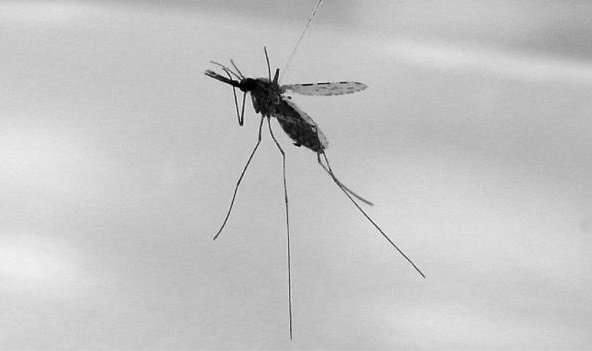This article has been reviewed according to Science X's editorial process and policies. Editors have highlighted the following attributes while ensuring the content's credibility:
fact-checked
peer-reviewed publication
trusted source
proofread
'Supercharged' insecticide effective against insecticide-resistant mosquitoes

New York University researchers recently created a new and improved crystal form of deltamethrin, a common insecticide used to control malaria. The new deltamethrin—created by simply heating the existing form in a microwave for five minutes—is up to 12 times more effective against mosquitoes than the original insecticide.
Now, in a new study published in Malaria Journal, the NYU researchers teamed up with the Liverpool School of Tropical Medicine and the Innovative Vector Control Consortium to test the more active deltamethrin on a suite of highly insecticide-resistant Anopheles mosquitoes from West Africa. They found that the more active form was 100% effective against these malaria vectors, a substantial improvement over the commercially available form, which was between 4-14% effective.
Controlling malaria-transmitting mosquitoes with insecticides is increasingly challenging because of widespread resistance amongst mosquitoes. Public health officials are constantly looking for new agents with different mechanisms of action to try and stay one step ahead of resistance. But what if we can restore the effectiveness of insecticides by using more active forms?
In tests with five different strains of insecticide-resistant Anopheles mosquitoes, the researchers found that their more active form of deltamethrin was 100% effective against the mosquitoes within 10-20 minutes of contact. In contrast, the original form of deltamethrin was only 4% effective against three strains of mosquitoes within 24 hours and 14% effective against a fourth. Moreover, the more active deltamethrin has maintained its potency for at least 13 months (and counting).
The researchers were excited to discover that resistant mosquitoes can be controlled with an insecticide to which they are resistant without fundamentally altering its molecular composition or having to search for brand new compounds.
"In sum: We buy some commercial product, stick it in a microwave for the time it takes to make popcorn, and it is supercharged. It is remarkably simple intervention, with dramatic consequences," says Bart Kahr, professor of chemistry at NYU and one of the authors of the article.
More information: Jessica Carson et al, Overcoming insecticide resistance in Anopheles mosquitoes by using faster-acting solid forms of deltamethrin, Malaria Journal (2023). DOI: 10.1186/s12936-023-04554-x
Journal information: Malaria Journal
Provided by New York University




















